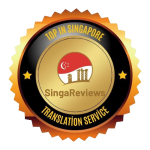
Complete Guide to Japanese Translation Services in Malaysia: Finding Certified Translators for Legal, Business & Personal Documents
The demand for Japanese translation services in Malaysia has grown significantly in recent years. With over 2,810 Japanese company projects operating in Malaysia and creating more than 344,000 jobs as stated from Human Resources Online, the need for professional Japanese language translation has never been greater. This guide will help businesses and individuals navigate the process of finding certified translators for their legal, business, and personal document needs.
When dealing with international legal or business documents, accuracy and authenticity are non-negotiable. Even a minor mistranslation can cause official delays or legal disputes. To better understand why certified translation plays such a critical role in ensuring document legitimacy, see this detailed guide on certified translation and when it’s required. It explains the certification process, country-specific regulations, and the benefits of hiring accredited translators for legal, academic, and business purposes.
Why Japanese Translation Services Matter in Malaysia
Malaysia and Japan share a strong economic partnership. According to MATRADE, In 2023, bilateral trade reached RM156.64 billion, making Japan Malaysia’s fourth-largest trading partner for nine consecutive years. Japanese companies have invested heavily across various sectors, including automotive manufacturing, electronics, semiconductor assembly, and renewable energy.
This economic relationship creates a constant need for accurate Japanese translation services in Malaysia. Whether you’re a business entering the Japanese market, a Malaysian company working with Japanese partners, or an individual requiring document translation for immigration or education, professional translation services are essential.
In a competitive global marketplace, professional translation ensures that communication remains accurate, culturally appropriate, and legally compliant. To understand in greater depth why investing in expert translation services is essential for modern businesses, see this guide on why professional translation is necessary, which discusses its impact on brand credibility, legal accuracy, and international growth.
Types of Documents Requiring Japanese Translation
Japanese translation services in Malaysia cover a wide spectrum of document types to meet the diverse needs of businesses, individuals, and academic institutions. Each type of document has its own set of requirements and standards, making it crucial to choose the right translation approach.
Below, you’ll find the main categories of documents that often require professional Japanese translation and what makes each type unique.
1. Legal Documents
Legal translation requires precision and expertise. Common legal documents needing Japanese translation include:
- Birth/Marriage/Divorce/Death Certificates
- Court orders and legal contracts
- Power of attorney documents
- Immigration and visa applications
- Naturalisation Papers
- Police clearance certificates/Police Reports
- Adoption papers
- Affidavits
- Agreements
- Customs documents
- Medical/Hospitalisation Certificates (can also be personal, but often required legally)
- Passports
- Permanent Residence Booklets
Professional Japanese translation ensures that legal terminology is accurately conveyed, preventing costly misunderstandings or document rejection.
When preparing documents for international business travel, one common issue companies face is handling passport translations for visa applications. While general translation may work for informal purposes, official travel documents require a higher standard of accuracy. To understand why certification is crucial and how it differs from standard translation, explore this in-depth guide on certified passport translation and its role in ensuring smooth visa applications. It discusses embassy requirements, ISO translation standards, and best practices for selecting certified translators who meet international compliance expectations.
2. Business Documents
Japanese translation services are crucial for businesses engaged in international trade. Business documents requiring translation include:
- Contracts and agreements
- Financial statements and audit reports
- Business proposals and presentations
- Corporate correspondence
- Standard operating procedures
- Product specifications and technical manuals
- Agreements (also legal)
- Customs documents (also legal)
- Licenses
- Property Papers, Real Estate Deeds
- Tax Payment Records
- Trade Marks Registrations
- VAT invoices
- Vouchers for Telegraphic Transfers
The automotive industry, in particular, relies heavily on Japanese translation Malaysia services. With major manufacturers like Toyota, Honda, and Nissan operating in Malaysia, technical translation expertise is vital.
3. Academic Documents
Students pursuing education opportunities need certified translation services for:
- Recommendation letters
- Research papers and theses
- Course descriptions
- Diplomas, School Papers, Degree Certificates, Academic transcripts
- Graduation Certificates
Universities in both Malaysia and Japan require certified translations to verify academic credentials accurately.
4. Personal Documents
Individuals often need Japanese translator Malaysia services for:
- Passport and identity documents (also legal)
- Medical records and prescriptions
- Driver’s licences
- Personal correspondence
- Immigration documentation
- Adoption papers (also legal)
- Birth/Marriage/Divorce/Death Certificates (also legal)
- ID Card
- Medical/Hospitalisation Certificates (also legal)
- Permanent Residence Booklets (also legal)
- Police Reports (also legal)
- Recommendation Letters (if academic or professional, can be business/academic)
Notes:
Some documents fall into more than one category. For example, “Agreements” and “Birth Certificates” can be both legal and personal depending on context. “Recommendation Letters” may be academic or business-related. “Medical Certificates” often have personal and legal uses.
If you’re dealing with official documentation such as police reports, precision and authentication are vital. To understand how certified translation guarantees that accuracy, refer to this quick guide on obtaining quality certified translation services for important police reports, which explains how professional certification safeguards the integrity of sensitive legal information.
Understanding Certification Requirements in Malaysia
Not all translations are considered “certified” in Malaysia. A certified translation includes an official declaration from the translator attesting to its accuracy and completeness.
Disclaimer: Certification requirements for translations in Malaysia may differ according to the specific institution or submission. Please always check with the relevant authority or organisation, as submission requirements might not be the same in every case. Not all translations are considered ‘certified’ in Malaysia. A certified translation includes an official declaration from the translator attesting to its accuracy and completeness.
1. Recognised Certification Bodies
In Malaysia, translations must be certified by approved institutions to be officially recognised:
- Institut Terjemahan & Buku Malaysia (ITBM): The national institute for translation and publications
- Malaysian Translators Association (MTA): A professional body for translators and interpreters
- High Court translators
Translations from freelance individuals or private agencies without certification from these bodies may be rejected by government authorities.
To understand why professional academic interpreters, especially for Japanese research contexts are crucial, see how Japanese interpreting ensures accuracy in academic collaboration. The article highlights the differences between simultaneous and consecutive interpreting and explains what makes Japanese academic interpretation uniquely demanding.
2. Certification Statement Requirements
A proper certified translation must include:
- Translator’s declaration of accuracy
- Signature and official seal
- Translator’s identification details (name, address, qualifications)
- Date of translation
- Statement of competence in both languages
3. Additional Authentication Steps
For international use, certified translations may require further authentication:
- Ministry of Foreign Affairs (MOFA) Attestation: Also known as legalisation or notarisation, this process involves Wisma Putra certifying the document’s authenticity.
- Embassy Legalisation: Foreign embassies in Malaysia may need to verify documents for use in their countries.
For official or legal paperwork, understanding notarised translation requirements is essential to avoid delays or rejections by authorities. You can learn more in this quick guide to understanding notarised translation, which explains how notarisation differs from certification and why it’s often necessary for legal and governmental use.
Choosing the Right Japanese Translation Agency Malaysia
Selecting a professional Japanese translation service requires careful consideration. Here are key factors to evaluate:
1. Translator Qualifications
Professional Japanese translators should possess:
- Native or near-native proficiency in both Japanese and the target language
- Formal education in translation or relevant field expertise
- Membership in recognised professional bodies (MTA, ITBM)
- Industry-specific knowledge (legal, medical, technical, etc.)
2. Language Pair Expertise
Translation services Malaysia should offer both:
- Japanese to English translation: Essential for Malaysian businesses working with Japanese partners
- English to Japanese translation: Critical for companies entering the Japanese market
Native Japanese speakers often provide the most culturally appropriate translations, particularly for business communications.
3. Industry Specialisation
Different industries require specialised knowledge. Look for translation agency Malaysia providers with expertise in:
- Technical Translation: Engineering documents, manufacturing manuals, product specifications
- Legal Translation: Contracts, court documents, compliance materials
- Medical Translation: Clinical trial documents, pharmaceutical materials, medical device documentation
- Business Translation: Marketing materials, financial reports, corporate communications
When preparing legal documents for submission to the court, precision and reliability are non‑negotiable. Even a minor translation error can impact the admissibility or interpretation of evidence. To understand how certified translations and transcriptions ensure compliance with courtroom requirements, refer to this comprehensive guide on obtaining certified translations and transcriptions for legal documents in court proceedings. It explores why certification is indispensable in legal contexts, how cultural nuances affect evidence translation, and the benefits of using accredited professionals to maintain the integrity of legal materials.
4. Quality Assurance Processes
Reputable Japanese translation company providers implement rigorous quality controls:
- Multiple rounds of review and proofreading
- Subject matter expert verification
- Consistency checks using translation memory tools
- Final quality assessment before delivery
Common Challenges in Japanese to English Translation
Japanese language translation presents unique difficulties that professional translators must navigate:
1. Writing Systems Complexity
Japanese uses three writing systems: hiragana, katakana, and kanji. Each serves a specific purpose, and translators must accurately interpret thousands of kanji characters.
2. Grammatical Structure Differences
Japanese follows a subject-object-verb (SOV) word order, whilst English uses subject-verb-object (SVO). This structural difference requires careful sentence reconstruction.
3. Cultural Context and Nuance
Japanese communication relies heavily on context, implicit meaning, and varying levels of politeness. Direct word-for-word translation often fails to capture the intended meaning.
4. Honourifics and Formality Levels
The Japanese language includes complex honourific systems that don’t have direct English equivalents. Professional translators must understand these nuances to convey appropriate respect and formality.
Factors Affecting Japanese Translation Service Costs in Malaysia
Several factors can influence Japanese translation service costs in Malaysia.:
1. Factors Affecting Cost
- Language pair complexity
- Document technicality and specialisation
- Turnaround time (urgent translations cost more)
- Certification requirements
- Notarisation and legalisation needs
- Volume of work
Japanese translation typically costs more than common language pairs due to its complexity and the specialised skills required.
2. Turnaround Times and Delivery
Professional translation services offer flexible timelines:
- Standard delivery: 3-7 working days for most documents
- Express service: 1-2 working days with additional fees
Complex technical documents or large volumes may require longer timeframes. Always discuss deadlines upfront with your chosen translation agency Malaysia.
Benefits of Using Professional Japanese Translation Services
Engaging a professional Japanese translation service in Malaysia offers far more than just language conversion. These services deliver critical value in terms of accuracy, quality, legal compliance, and confidentiality, ensuring your documents meet the demands of business, law, and personal communication.
Businesses and individuals often underestimate the importance of certified translation until they face issues with legal or official documentation. To gain a clearer understanding of why certification ensures accuracy, compliance, and professional credibility, see this overview of the key benefits of certified translation. It explains how professionally certified translations enhance trustworthiness and meet international standards for official use.
Let’s discuss the main advantages of relying on certified experts for your Japanese translation needs.
1. Accuracy and Quality
Professional Japanese translation ensures:
- Precise terminology and technical accuracy
- Cultural appropriateness
- Consistent brand messaging
- Error-free documentation
Machine translation tools like Google Translate cannot match the nuance and accuracy provided by experienced human translators.
2. Legal Compliance
Certified translation services guarantee:
- Acceptance by government agencies
- Compliance with regulatory requirements
- Valid documentation for legal proceedings
- Recognition by foreign embassies and institutions
3. Time and Cost Efficiency
Whilst professional services require investment, they save money by:
- Preventing costly mistranslations
- Avoiding document rejection and resubmission
- Reducing revision cycles
- Enabling faster approval processes
4. Confidentiality and Security
Reputable translation services maintain:
- Strict confidentiality agreements
- Secure document handling procedures
- Data protection compliance
- Professional ethical standards
When to Use Certified Translation Services
Certified translation is required when:
- Submitting documents to Malaysian government agencies (Immigration Department, Ministry of Foreign Affairs, courts)
- Applying for visas or immigration to Japan or other countries
- Registering foreign marriages or civil documents in Malaysia
- Enrolling in educational institutions
- Conducting legal proceedings
- Meeting regulatory compliance requirements
For internal business use, such as understanding Japanese correspondence or reviewing contracts before formal execution, standard professional translation may suffice without full certification.
The Japanese Translation Process
Understanding the workflow helps set realistic expectations:
1. Initial Consultation
- Submit documents and specify requirements
- Discuss certification needs
- Clarify deadline and budget
- Receive detailed quotation
2. Translation Phase
- Experienced Japanese translator processes the document
- Technical terminology verified
- Cultural adaptation applied
- First draft completed
3. Review and Quality Control
- Proofreading by second translator
- Consistency and accuracy checks
- Subject matter expert review (if needed)
- Client review opportunity
4. Certification and Delivery
- Certification statement prepared
- Translator signature and seal applied
- Notarisation (if required)
- Final delivery in requested format
5. Post-Translation Support
Professional services provide:
- Revision support if needed
- Assistance with authentication processes
- Guidance on document submission
- Ongoing client support
Industry-Specific Considerations
Japanese translation services in Malaysia are not limited to general document needs, they offer specialised support for key industries that rely on accurate and technical language solutions. Each sector, from automotive and electronics to finance, faces unique challenges when communicating across languages.
Understanding these industry-specific considerations is vital to ensure translations are not just linguistically correct, but tailored to the terminology and standards of your field.
1. Automotive Sector
Malaysia’s automotive industry has strong Japanese connections. Translation needs include:
- Manufacturing procedures and quality control documentation
- Safety compliance materials
- Engineering specifications
- Audit and vendor communication
2. Electronics and Semiconductor
Japanese companies invest heavily in Malaysia’s semiconductor sector. Translation requirements cover:
- Technical specifications
- Product documentation
- Quality assurance protocols
- Research and development materials
3. Business and Finance
Financial translation demands precision in:
- Accounting standards and reports
- Investment documentation
- Banking and insurance policies
- Merger and acquisition agreements
Questions to Ask Your Translation Provider
Before engaging a Japanese translation service, ask:
- Are your translators certified by recognised Malaysian bodies (ITBM, MTA)?
- Do you offer notarisation and MOFA attestation services?
- What quality control processes do you implement?
- Can you provide samples of previous work?
- Do you have experience with my specific document type?
- What is your typical turnaround time?
Red Flags to Avoid
Be cautious of services that:
- Offer suspiciously low prices
- Cannot provide translator credentials
- Lack certification from recognised bodies
- Have no physical business presence
- Cannot explain their quality control process
- Provide vague timelines or guarantees
The Future of Japanese Translation in Malaysia
As Malaysia-Japan economic ties strengthen, the translation industry continues evolving. Key trends include:
- Increased demand for business Japanese competence beyond basic language proficiency
- Growing need for specialised technical translators in emerging sectors
- Integration of translation technology whilst maintaining human oversight
- Enhanced certification standards and professional development
Malaysia ranked tenth worldwide with 39,247 Japanese language learners in 2018, reflecting sustained interest in Japanese language skills. This growing talent pool supports the translation industry’s expansion.
Making the Right Choice
Selecting the right certified translator Malaysia requires balancing quality, cost, and timing. Professional Japanese translation services provide:
- Accurate, culturally appropriate translations
- Official certification accepted by authorities
- Industry-specific expertise
- Reliable turnaround times
- Ongoing support and service
Whether you need legal document translation for immigration purposes, business materials for Japanese partners, or academic transcripts for university applications, working with qualified professionals ensures your documents meet all requirements.
Expanding into international markets requires precision when handling business documentation. To learn how professional translation supports accurate and compliant documentation for cross‑border operations, see this article on obtaining certified translations for business documents, which outlines how certified translation builds credibility and ensures compliance with overseas regulatory standards.
Take the Next Step
Finding reliable Japanese translation services in Malaysia doesn’t have to be complicated. By understanding certification requirements, asking the right questions, and choosing experienced providers, you can ensure your translation needs are met professionally and efficiently.
For businesses and individuals seeking professional Japanese language translation services, working with established providers who understand both Malaysian certification requirements and Japanese cultural nuances is essential. The investment in quality translation pays dividends through successful applications, smooth business transactions, and effective cross-cultural communication.
Ready to get started with professional Japanese translation services? Visit Elite Asia to connect with experienced certified translators who can handle all your legal, business, and personal document translation needs. Get a free quote today and experience the difference that professional Japanese translation makes.










